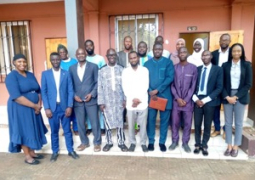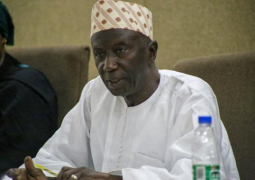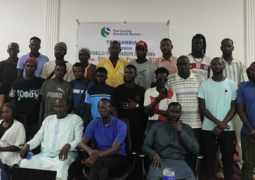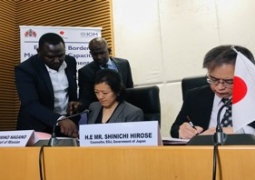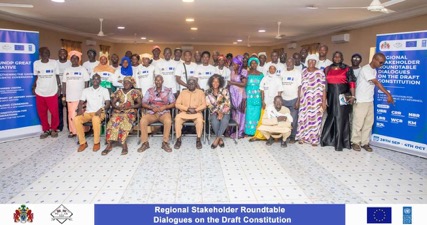
The regional advocacy attracted Ward Councillors and key regional stakeholders.
At a ceremony held in Basse, Yusupha Bojang, Chief Civic Education Officer at the National Council for Civic Education, reminded that the draft constitution is the result of a wide-reaching consultative process sampling the voices of the public across all regions.
The drafting process, he added, also sought the input of men and women, youth and elders from all walks of life, adding that this inclusivity is key in view of the fact that constitution belongs to the people, and it must reflect the collective will of the public.
"We must recognize that a constitution is not simply about legal technicalities; it must capture the spirit of the nation, respect its diversity, and accommodate the evolving needs of future generations." he stated.
Bojang maintained that the drafting of the constitution is everyone’s business as it will add value to the discussion at the National Assembly.
Abubacarr M. Danjo, Vice Chairman of the Basse Area Council (BSaC), affirmed that the Constitution is more than a legal document, as it is the bedrock upon which ‘our democratic governance and national unity are built.’
Danjo described the process of drafting a new constitution as a historic moment and one that allows people to collectively shape the future of ‘our nation, ensuring that it reflects the values, aspirations, and hopes of all Gambians.’
"Today, this draft constitution has rightfully become the talk of the town. This is because it seeks to address critical issues of governance, human rights, and development, while ensuring that our laws are aligned with the needs of the people. Every Gambian, from the smallest villages to the urban centres has a stake in this process. This is why today's dialogue is of paramount importance," he stated.
In a similar event held in Janjanbureh, Ousman Bah, governor of the Central River Region (CRR), said the dialogue is an opportunity to listen to different perspectives, address concerns and ensure that the final document serves the interests of the entire nation.
"As local leaders, we bear a special responsibility to ensure that our communities are engaged in this process. We must ensure that people understand the provisions of the Constitution and feel that their voices are being heard." he said.
The 2024 draft constitution, he added, must not be seen as an imposition from above, but as a true reflection of the will of the Gambian people.
Governor Jallow thus encouraged all stakeholders to engage in constructive discussions with an open mind and understanding that no constitution can be perfect, but that it must be a document that brings us together rather than divides us.
Meanwhile, similar regional stakeholder dialogue on the new draft constitution will continue in other regions across the country.


